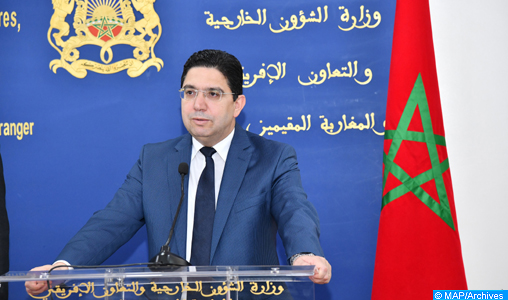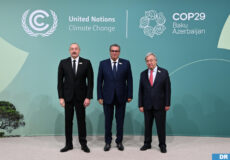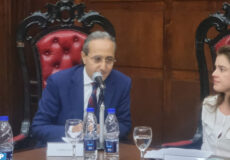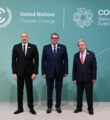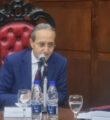UN Summit on Biodiversity: Morocco Underlines Need for Urgent Global Action
New York (United Nations) – On the occasion of the first United Nations Summit on Biodiversity, organized virtually in New York by the President of the General Assembly, Minister of Foreign Affairs, African Cooperation and Moroccans abroad, Nasser Bourita, has called, in a speech sent to this Summit, for an urgent global action to face the worrying deterioration of biodiversity which threatens ecosystems across the globe.
“While biodiversity is part of our multilateral agenda, it is high time that this issue found its equivalent in the context of concerted collective action, solidarity cooperation and a sustainable human way of life that could stop the current haemorrhage. Our survival and that of future generations are at stake,” the minister underlined.
The current context marked by Covid-19 has reminded us to what extent human health and nature are intrinsically linked, he noted. “The protection of ecosystems through the preservation of biodiversity constitutes, in fact, a means of prevention and fight against the pandemic,” he said.
“While global attention is currently focused on the consequences of the health crisis, biodiversity must not lose its primordial importance. Protecting ecosystems is not only a necessity, it is an emergency”, he insisted, stressing that the data on the degradation of biodiversity in the world are “dizzying”, and must “not only challenge our conscience, they must call for action”.
Morocco, under the leadership of His Majesty King Mohammed VI, has adopted a pioneering national policy on biodiversity, he said, adding that it is within this framework that the Strategy and the National Action Plan for Biological Diversity, as well as the National Assessment of Biodiversity and Ecosystem Services were adopted.
His Majesty the King launched, in February 2020, two new strategies called “Green Generation 2020-2030” and “Forests of Morocco”, aiming, among other things, to consolidate achievements and involve all stakeholders in the preservation of biodiversity, Bourita recalled, adding that in the same perspective, a flagship project consisting in planting 10,000 ha of Argan tree over a period of 6 years has started, with a total budget of 49.2 million dollars, co-financed by the Kingdom of Morocco and the Green Climate Fund.
Morocco has also committed to present to the United Nations General Assembly a draft resolution to proclaim an international day of the Argan tree, he added, noting that the Kingdom has introduced among its priorities, the establishment of good governance, the promotion of partnerships, the development of an intelligent mapping of biodiversity, as well as a control and prevention system.
Aware that biodiversity is an indivisible universal heritage, Morocco has joined other African countries in placing its preservation at the heart of the operationalization of the three Climate Commissions, resulting from the African Action Summit in favor of a co-continental emergence, held at the initiative of His Majesty King Mohammed VI, in November 2016, on the sidelines of the COP22 in Marrakech, Bourita added.
The African continent, whose ecosystems are of global importance, does not receive all of the dividends arising from its natural capital, the minister said, explaining that Africa’s biodiversity is experiencing an alarming decline.
The United Nations Summit on Biodiversity was convened by the President of the General Assembly on 30 September 2020, at the level of Heads of State and Government under the theme of “Urgent action on biodiversity for sustainable development.”
The Summit highlighted the crisis facing humanity from the degradation of biodiversity and the urgent need to accelerate action on biodiversity for sustainable development. It also provided an opportunity for Heads of State and Government and other leaders to raise ambition for the development of the post-2020 global biodiversity framework to be adopted at the 15th Conference of Parties to the Convention on Biological Diversity in 2021.
According to the UN, 75% of the Earth’s land surface has been significantly altered by human actions, including for example the loss of 85% of the area of wetlands, while 66% of the ocean area is experiencing multiple impacts from people, including from fisheries, pollution, and chemical changes from acidification.
More than 70 countries, including Morocco, pledged on Monday to put wildlife and climate at heart of post-Covid recovery plans, clamp down on pollution, embrace sustainable economic systems and eliminate the dumping of plastic waste in oceans by the middle of the century as part of “meaningful action” to halt the destruction of nature on Earth.



